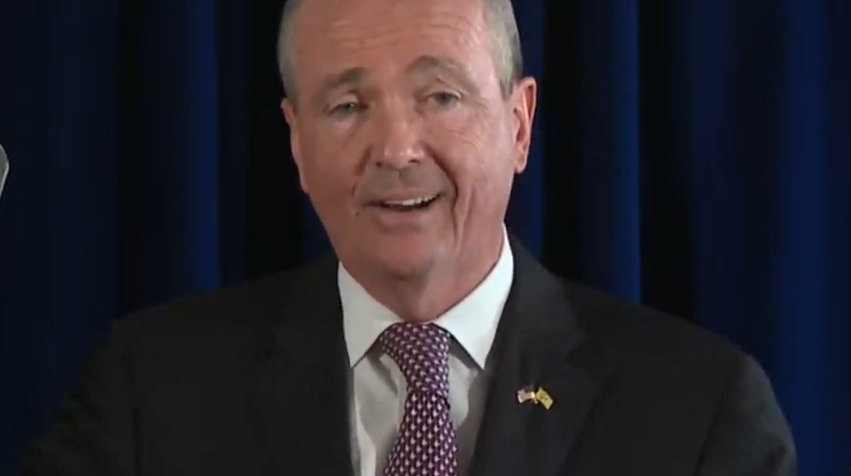Conflict Within New Jersey Democrats Unlikely to Affect 2019 General Assembly Elections
Listen to audio version of this article

While the [bubbleAutoLink text="civil war" id="55148"] burning through the New Jersey’s Democratic Party shows no signs of abating --- indeed, just the opposite --- its impact on the General Assembly elections this November will be negligible no matter how intense the vitriol or how harsh the language. The 80-member chamber that will be sworn in in January, 2020, will, in its partisan makeup, be little changed from the current body.
The open warfare will continue to capture the imagination of the media/political establishment, providing a constant stream of column inches of print, hours of airtime, and incalculable numbers of mouse clicks while filling the halls of the Statehouse with gossip and the latest intrigue spread by self-proclaimed insiders who purport to know.
As for swaying voters this November, not so much.
The bitter exchanges between Gov. Phil Murphy and Senate President Steve Sweeney (D-Gloucester) portray a Democratic Party riven by a struggle for dominance but have scant resonance among voters.
In a state in which Democrats hold an insurmountable lead in voter registration --- nearly one million over Republicans --- Assembly elections and the paltry turnouts they draw are decided by committed party voters, those who troop faithfully to the polls every year to support the organization candidates.
In the absence of any overarching policy issue of the sort which mobilizes voters intent on delivering a message, it is party identification and allegiance bolstered by long established voting patterns that determine the outcome.
Consequently, an appreciable shift in the 54-26 edge currently held by Democrats isn’t in the cards.
That New Jersey’s district map is a model of non-competitiveness is a given. It is largely an incumbent protection plan, although --- in fairness --- it reflects the reality of one-party dominance in legislative elections. It’s been 18 years since Republicans last controlled the Legislature, for instance, and short of a gubernatorial landslide, the party faces years of minority status.
Voters may side with the Murphy or the Sweeney-led faction, but the conflict is more a topic of conversation than a decisive factor in their ballot decision.
Democratic voters won’t abandon the party because of a power struggle at the top. They will not opt for a Republican candidate to express dissatisfaction with what they believe is a messy situation which should never have gotten this far.
It’s a bit like watching two friends duke it out in the parking lot of the neighborhood bar --- they’re interested in who wins, but it doesn’t affect the way they feel about either one of the combatants.
Some dismiss the entire upper echelon feud as typical inside baseball that the overwhelming number of voters brush off as the sort of family disagreement which erupts from time to time in party politics. Strong personalities in positions of power inevitably butt heads --- particularly when personal ambition is a major factor --- but eventually a truce is reached and the only casualties are hurt feelings and bruised egos.
While the impact of the constant sniping and snarkiness in the current governor versus legislative leadership conflict will barely be felt this November, it will --- if not dialed back --- create a serious and potentially perilous threat in 2020.
Some in the party have recognized that the chasm that’s opened between the Administration and the leadership may already be unbridgeable and have urged a cooling off period. To no avail.
Murphy, for instance, has continued to identify an increase in the tax on incomes above $1 million as the centerpiece of his legislative priorities and has been unsparing in his criticism of those who disagree. Although the increase has been rejected in his two budget proposals, he has remained adamant and presumably intends to include it in his budget message next March, teeing up another confrontation and bringing the state to the brink of a government shutdown for the third consecutive year --- a less than enviable accomplishment.
He delivers his “Whose side are you on?” challenge to the legislative leaders in a manner suggesting that the wrong answer will draw retaliation. The choose up sides dare will take on a more divisive tone as eyes and attention increasingly turn to the 2021 election, placing every significant legislative agenda item in the context of the gubernatorial and legislative campaigns.
Murphy’s critics --- chiefly South Jersey political leader George Norcross --- have already raised the prospect of a primary election challenge to Murphy and whether it develops will depend in considerable measure on whether the existing differences --- while deep --- can be put aside.
If there is no letup in the rhetorical swordplay and if it reaches a higher level of viciousness, the denouement will only be realized by the 2021 election.
The unprecedented level of intra-party conflict has upended the conventional wisdom that unified, one-party government is the path to achieving public policy goals through compromise, finding common ground and embracing co-existence as uneasy as it might be.
This November will produce a status quo election and the Assembly will remain firmly in the grip of the Democrats. What they do with that control will determine all that follows.
-----------------------------------------------------------
Carl Golden is a senior contributing analyst with the William J. Hughes Center for Public Policy at Stockton University.






The GOP does not have apparatus nor the candidates to win the Assembly. Additionally, they do not have the votes to approve GOP-leaning redistricting plan - if one could even get through the redistricting committee. The GOP lacks funds, leadership, candidates, ideas and the internal grit to win anything.
How does the GOP face years more of minority status? If the GOP wins redistricting in 2021--a 50/50 proposition--they may well win the legislature